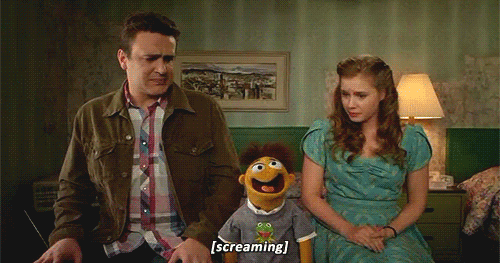Hi, I’m Kate. Ask an Author is a free newsletter providing advice and support for authors at all stages of writing, publishing, and hand-wringing. If you know someone this applies to, you can forward them this email and encourage them to sign up. Have a question? Fill out this form and I’ll answer it in a future response.
Hello, all!
Starting today’s post with some housekeeping, and then I’ll get to a question about genre, querying, and interpreting rejections.
Substack added a “Pledge” button that I actually hadn’t realized went out at the bottom of my last newsletter. For those of you who have pledged your support, THANK YOU! Wow. I’m committed to keeping the information in this Substack free, because I think it’s important for publishing to become more transparent and accessible—not less so.
At the same time, I’m extremely grateful to those of you who said you’d like to pay to support this newsletter and all the work that goes into it.
I’ve decided to enable paid subscriptions, but I will NOT be hiding information behind a paywall.
Questions and answers will stay available to ALL subscribers, exactly as it’s been. If this newsletter is valuable to you, consider becoming a paid subscriber ($5/month) to support this work. Or make a one-time donation for an amount of your choosing. Every little bit helps! I’m grateful to all of you for being here and making this community possible.
If you’re not yet a free subscriber, please sign up! As always, anyone can ask a question that I’ll answer in a future newsletter. I look forward to hearing from you.
Dear Kate,
I’ve been querying a novel that I’ve worked on for years, and I’ve gotten multiple rejections that are variations on a theme: the agents say they love the book and the writing, but it’s a “saturated” market and they don’t see how my voice will stand out. I guess I should be glad I’m hearing anything from them, but what do I do with this kind of feedback? This isn’t my first time querying and getting nowhere. I’m considering scrapping it all and switching to another genre to see if I have more luck. Is this something people do?
- UGH
Dear UGH,
I think I speak for ALL OF US when I say your name sums it up.
I’m sorry you’re facing this frustration and sorry you’re feeling down about it. This kind of feedback is SO familiar, and it comes from both agents and editors. Sometimes it really means the market is jam packed and your work isn’t grabbing them more than other manuscripts they’re reading. Sometimes it means they don’t know how to market your book, or how they would pitch it, or they don’t have the right contacts to pitch it to. Sometimes it means they don’t have something more concrete to say, and that’s the generic line they go with. Sometimes it means you just haven’t connected with the right reader yet, and you have to keep going.
I’m going to say something that might sound harsh but bear with me because it’s NOT meant that way, and I promise that after the less-fun part, I will get to the upshot and it will (hopefully) be worth it.
Ready?
I’m not convinced those pass letters you’re receiving are personalized rejections. I can’t speak to every agent rejection, obviously, and I’m not reading YOUR rejections. But I want to raise this possibility for you and for anyone reading this: I’ve seen writers be hurt or excited or have some kind of reaction to what they think is a personalized rejection specific to their manuscript, but the reality is that it’s probably (or sometimes definitely) a form letter. Form letters can be really nice. Which is a good thing! But there's often a tone to them and a characteristic vagueness that makes you realize they could kinda be about anyone’s manuscript, not just yours.
“I don't have a vision for how to place this in a crowded market” (or something like that) feels to me like it could go either way. It might be a statement about your writing and your voice and whether they think it stands out among hundreds of other submissions. It might be totally genuine – they like it and they also don’t know how to position it so it will jump out to editors. But it also might be something they say about a lot of manuscripts they read. It’s a variation of “I don’t see a place for this on my list.” That could mean a lot of things, some within your control but most of them not. The bottom line is that it’s not a match, and while it’s good to get a sense of how your writing is landing with agents and what you might work on in your revisions or for your next manuscript, at the end of the day you can’t tear your hair out trying to analyze every “no” you get.
I'm not writing this to say that yours are definitely form rejections. I don’t know! I'm writing this to encourage you to not read too much into it. To not take a few emails from a few agents as the determining factor in shaping your writing, your voice, your sense of self as a person and as a writer. These passes ESPECIALLY shouldn’t dictate what you love to write, or your chosen genre.
Say you switch gears and start writing in a different genre. Which would you choose? Which genre isn’t currently stuffed to the gills with eager writers trying to break in?
I hear the same “it’s really tough right now” about romance, literary, fantasy, sci fi, adult, YA, MG, picture books, mystery, thrillers, horror… If you can name a genre, I can find you an agent/editor/book scout/someone’s grandma lamenting how saturated the market is and how difficult it is for new authors to break in.
We have an abundance of riches, with amazing books to choose from and more people writing than ever before, combined with strikes and layoffs and people leaving the industry in droves, which all adds up to make a serious supply/demand problem. We have WAY more people trying to get their books published than there are editors who can take them on. This sucks! For everyone! It’s also weirdly liberating??? Because there’s no shortcut to a trad pub deal. There’s no “right” answer, which means you aren’t doing the “wrong” thing.
You aren’t writing in the wrong genre or in the wrong way. The cards are stacked against you because it’s capitalism, baby, and the cards are stacked against all of us. Write what you love. Write what makes you excited to sit down at the computer. Maybe not all the time, because some days are like that. But when you get that glimmer, that excitement—when you experience the JOY that made you want to write in the first place. Follow that, not the market or the whims of a few agents based on a few sentences that don’t, in themselves, give you enough information to interpret anyway.
Got an idea you’re excited about in a different genre? Go for it!!!! Don’t feel beholden to the genre you started writing in just because you began there. This isn’t a financial decision for you because you aren’t making any money (yet) from your work, so it really can be about what grabs you and where you’d most like to see yourself end up down the line. Remember—whatever you write will wind up being what you have written. Whatever you don’t write won’t become one of your books. What do you want to be working on? What do you want to become part of your body of work?
If you don’t have something sparking you in another genre and you still feel drawn to the genre you’ve been writing in, even if it’s difficult and discouraging and sometimes you want throw the computer out the window, stick with the hard thing. Take a break if you need it. But don’t let some agents telling you it’s a tough road make you feel like you can’t do it. You can do hard things. You wrote a whole book! Multiple books, if you’ve queried multiple times. It’s going to be hard in any genre, and how lousy would it feel to spend a million hours writing your compromise book, only to get the same “I don’t know how to make this stand out” rejections.
Bonus: you’re much more likely to have that spark in your writing, that surprise in your plot, that depth to your characters, if you’re truly into what you’re putting on the page.
I think it's important for writers to be aware of the market and to understand their place in it. But genres that are hot cool down. Genres deemed “dead” get resuscitated. If you're looking at traditional publishing, the timeline is so long that you can't get ahead of the trends. By the time you write, query, submit, and sell a manuscript, you're looking at potentially years—and then it still takes another one to two years to publication. It's a slooow process. You can’t look at a snapshot of the market right now and make your plan for how you’re going to seize your opening, because by the time your book comes out, the whole scene may be different again. That's why you have to write your own work, in your own voice, in your own direction.
The same thing is true for trying to game the system by writing in a less popular genre. You could start writing a book tomorrow in whatever genre you think is going to be the most hospitable—although as I've already said, I'm not sure what that genre would be. You still don’t know what the publishing landscape will look like by the time you’re ready to query, let alone go on submission. Smaller genres have fewer agents reading, fewer editors acquiring, and fewer readers to sell to — it’s still hard to break in. Again, I'm not saying this to be a downer. I'm saying this to encourage you to write what you want.
The more you write, the better your writing will get. Stronger, sharper, more vivid, more fully realized, more full of surprises. More YOUR voice and energy and style. The more you read, the better your writing will get. You will have more tools at your disposal, more tricks in mind for how to paint a scene or move through time or break a chapter or complicate a character. The more time you spend on this craft, the more you will raise your game. If you’re trying to do something that’s done a million times before, then yeah—it’s going to be hard to make your spin on vampires who glitter in the sun stand out, since Twilight already got there. But the more time you put into your work—whatever genre it may be—the more you’ll solidify your own take.
Good luck.
Kate
If this post was helpful, consider making a donation or becoming a free or paid subscriber:
This Substack is only possible because of the questions you ask! Fill out this form or click below to ask a question, and I’ll answer it in a future newsletter. Thanks for all your support!





Hi Kate,
Thank you for this message. I found it pretty encouraging. I appreciate your help.
Cate Covert
No, I mean an editor told me that publishing companies won't look at a manuscript over 10k for a debut. She wrote a book about publishing fiction, and sent it to me for free. That number was repeated at least twice. Have you found this to be true?